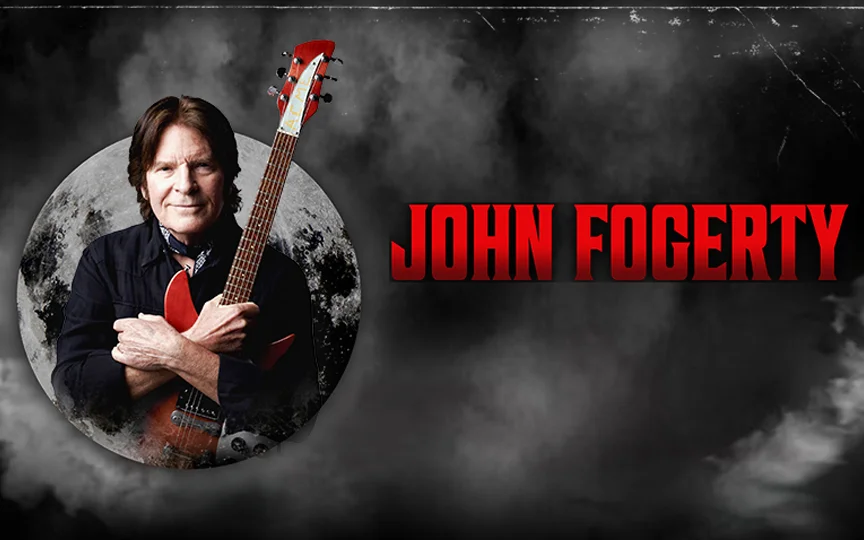
A burst of comeback joy — “I Can’t Help Myself” is John Fogerty’s shimmying, slightly restless sequel to “Centerfield,” a short, gleeful declaration that the long silence is over and the music has returned.
John Fogerty’s “I Can’t Help Myself” sits like a bright, slightly sweaty snapshot from a musician stepping back into the sun after years in the dark. It’s an album track from Centerfield, the 1985 record that announced Fogerty’s return to public life and promptly shot to No. 1 in the USA — an extraordinary commercial vindication after nearly a decade away. The album was cut quickly and purposefully at The Plant Studios in Sausalito during the summer of 1984; as the historical record shows, Fogerty recorded Centerfield between July and September 1984 and overdubbed nearly every part himself, producing a lean, self-contained statement of intent.
That right there — the knowledge that Fogerty played every instrument on the record and produced it himself — changes how you hear “I Can’t Help Myself.” You don’t listen for big studio polish so much as for the beating heart of one man laying his colours down. The track opens with bright, eager propulsion; percussion and percussive effects drive it forward, and Fogerty’s vocal arrives like someone who’s been waiting in the dugout and can’t hold back the grin any longer. Thematically it’s a direct cousin to “Centerfield”: both songs celebrate the thrill of re-entry, the small, boyish joy of being in the game again. That sense of return — equal parts relief and giddy impatience — is the song’s emotional motor.
On the technical side, Centerfield’s sessions are part of the song’s folklore. The album credits list Jeffrey Norman as engineer with Mark Slagle assisting; those production hands helped Fogerty capture a modern — for 1984 — sonic palette while he worked from meticulous demos and layered performances. The result is immediate: a mid-’80s sheen but not at the expense of raw muscle. If you listen closely you can hear the way the record blends vintage Fogerty melody with contemporary studio textures.
Critics and fans have always quarrelled gently with the album’s 1980s trimmings, and “I Can’t Help Myself” is where that conversation shows up most clearly. Many listeners enjoy the track’s irrepressible hook and Fogerty’s urgent delivery, while others note the prominent use of electronic percussion — a little drum-machine sheen that dates it to its era. A modern reappraisal called the song “a unique and entertaining track” and pointed out “the multitude of electronic percussion effects” that give it a fresh-for-its-time new-wave lilt. That tension — between timeless melodic grit and period production — is part of what makes the song interesting to older listeners who remember both the man and the moment.
Live, “I Can’t Help Myself” has been a rarer sight. When Fogerty revisited Centerfield for its 25th-anniversary reissue in 2010 he pulled the song out of the vault for a handful of shows that autumn — intimate reminders that the track was always meant as part of the record’s fast, celebratory beat rather than as a radio mainstay. Contemporary setlists show appearances in September 2010 at venues such as Borgata in Atlantic City and the Auditorium Theatre in Rochester, where older fans heard it again, sometimes for the first time live. Those moments feel like postcards: small, specific, and deeply satisfying.
For collectors and completists there are small treasures too: the song appeared as a promotional 12″ in the U.S. (Warner Bros. PRO-A-2337) and later shows up on some maxi-single configurations overseas — reminders that the record company still nudged a few tracks into the singles market even when the LP itself was the story.
If you come back to “I Can’t Help Myself” now — as an older listener with years of innings behind you — it reads as both confession and celebration. It’s the sound of a veteran player who can’t resist the diamond any more than he can resist the rhythm: the past is present in Fogerty’s voice and melodies, and the era is audible in the percussion. The song’s small, urgent joy, though, remains undiminished. It’s the kind of track that will make you smile and remember what it feels like the first time you walked out under the lights and thought, simply and fiercely, I’m home.